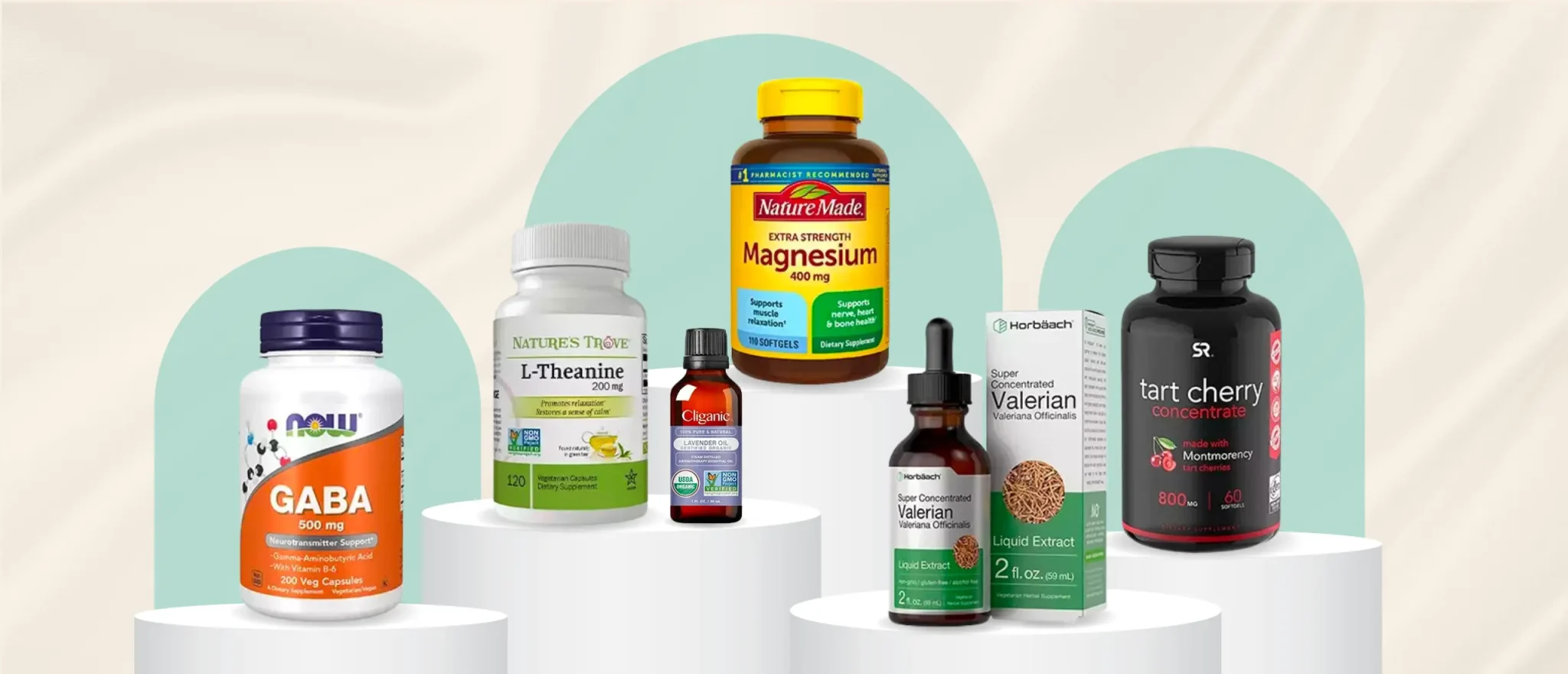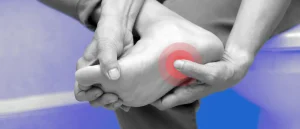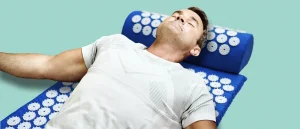7 Best Melatonin Alternatives for Sleep
Fast Facts
- Experts say that melatonin, which many Americans use for better sleep, should not be used for chronic insomnia.
- Melatonin alternatives include magnesium, GABA, valerian root, and tart cherry.
- If you regularly struggle to fall or stay asleep, try sleep aids without melatonin or talk to your doctor about potential underlying issues that might be causing your sleep problems.
Pre-pandemic it was reported that more than one-third of Americans struggled to get a good night’s sleep. That number jumped to 56 percent in a 2021 survey (1) from the American Academy of Sleep Medicine (AASM). In search of rest, half of us have turned to sleep aids—including melatonin. But according to a task force of sleep medicine experts commissioned by the AASM, you shouldn’t use the supplement (2) for chronic insomnia, so you’re better off looking for melatonin alternatives.
Melatonin isn’t meant for long-term use. What’s more, it won’t solve underlying health problems such as anxiety or sleep apnea that may be causing your disrupted sleep, says Jenna Gress Smith, Ph.D., clinical psychologist and founder of Arizona Sleep & Health.
“Restless legs syndrome or mood disorders like depression can also cause insomnia, and those may require medical treatment,” says Gress Smith. Melatonin can also interact with prescription drugs (3) such as those used to treat diabetes and high blood pressure, contraceptives, and anticoagulants—which is one reason why sleep aids without melatonin may be better if you are on drugs to treat a medical condition.
One caveat: Taking a sleep aid—either prescription medication or one of the below natural sleep aids without melatonin—can be a temporary solution to help you drop off after a stressful day. But relying on them long-term means that something may be wrong with your sleep schedule or your health, says Gress Smith.
“If you need help falling asleep for an extended period of time, think about what’s keeping you awake—a busy mind? Too much caffeine? Eating too late at night or using your electronics close to bedtime?— and whether you need to rethink your evening routine, or check in with a health professional.”
About the Expert:
Jenna Gress Smith, Ph.D. is a clinical psychologist and founder of Arizona Sleep & Health. She uses evidence-based tools to treat people improve their sleep. She pursued research and behavioral sleep medicine training at Stanford University and Arizona State University.
The Best Melatonin Alternatives
What can you use to nod off besides melatonin?
There are loads of natural sleep aids on the market, but keep in mind that natural doesn’t always mean safer or healthier. Plus, the Food and Drug Administration does not approve the safety or efficacy of supplements as drugs, including potential side effects. So check with your health care provider before making any additions to your pre-bedtime routine.
That said, here are 7 melatonin alternatives that some experts say may help you wind down at night so you fall asleep more easily and stay asleep longer.
1. Magnesium
Magnesium is a mineral that supports many of your body’s functions, including nerve and muscle function, says Gress Smith. “Magnesium can have a calming effect on the body. It helps to relax muscles, and helps regulate levels of GABA (or gamma-aminobutyric acid), a neurotransmitter that’s responsible for turning off wakefulness.”
Some research suggests that magnesium may help reduce mild to moderate anxiety (4), which is notorious for keeping you up at night. The recommended dietary allowance of magnesium is around 310 to 320 mg for women and 400 to 420 mg for men, but you may not be getting enough. According to the United States Department of Agriculture (USDA), nearly half of Americans are at risk for a magnesium deficiency.
The best source of magnesium is food (pumpkin seeds and dry roasted almonds are two of the top sources of the mineral) but there are also many supplement options, including the highly-absorbable magnesium glycinate which combines magnesium and the amino acid glycine.
2. GABA
“GABA is an amino acid and your brain’s main inhibitory neurotransmitter, which quiets your stress response,” says Gress Smith. “Our bodies make it naturally and it’s also found in certain varieties of tea and fermented foods.”
Some evidence (5) suggests that supplemental GABA may help you fall asleep and stay asleep. “100 mg of GABA is the most commonly studied (and scientifically supported) supplemental dose and should be effective for most people seeking sleep support,” says Gress Smith. One study found that supplementing 60 minutes before bedtime encouraged relaxation and lowered anxiety (6).
3. L-theanine
L-theanine is a compound found in nearly all teas and some mushrooms. Some studies suggest that L-theanine may affect (7) the levels of certain chemicals in the brain, including serotonin and dopamine, which may influence mood, sleep, and emotion. It may also be involved in elevating GABA levels (see above).
“Because the brain converts serotonin to melatonin, boosting serotonin levels would ultimately result in improved melatonin levels, which in turn supports restful sleep,” says Gress Smith.
Experts generally consider L-theanine to be safe, but there’s no high-quality research in humans to confirm its benefits. The recommended dose for sleep and stress is 100 to 400 mg, says Gress Smith.
4. Valerian root
People have been using melatonin alternatives for centuries. Case in point: Valerian root extract has been used to ease anxiety and nervous restlessness for centuries in Traditional Chinese Medicine, and is generally considered safe and gentle. Some research shows that it may help people fall asleep faster, and participants in one study reported better quality (8) sleep.
Valerian is unique among sleep remedies in that it may work better when taken for longer periods (9).
The roots of the valerian plant can be made into tea, but considering the dried herb’s scent has been compared to an old goat or sweaty socks, you may prefer to take valerian root in tincture, capsule, and tablet form. Take valerian 1 to 2 hours before bedtime, or up to 3 times over the course of the day, with the last dose near bedtime.
5. Tart Cherry
Tart cherry (whether you drink it in juice form or take a supplement) is gaining traction for promoting better and longer sleep. “Tart cherries contain high levels of antioxidants and tryptophan, which may combine to create one sleep superfood,” says Gress Smith. “The antioxidant properties also help combat oxidative stress, leading to more restorative sleep.”
According to the National Institutes of Health (NIH) Office of Dietary Supplements, you can safely drink up to 16 ounces of tart cherry juice or take 480 milligrams of tart cherry extract capsules.
For better sleep try taking tart cherry once per day for up to two weeks.
6. Lavender oil
Lavender is a fragrant plant known for its soothing scent and distinctive purple color and has long been used in herbal medicine where it’s valued as an herb with an ability to help lull you to sleep. A 2017 study found that inhaling the scent of lavender (10) essential oil had a positive effect on subjects with mild sleep disturbances.
Most studies on lavender’s efficacy as a sleep aid have focused on lavender essential oil. But you can use the dried herb to make tea or in place them under your pillow or in your pillowcase.
You can also diffuse the oil into the air, add it to a neutral body lotion, or dab on pulse points on your skin. Lavender oil contains poisonous compounds and should not be taken orally.
6. Warm Bath or Shower
Neither an herb nor a supplement, a warm bath or shower an hour or two before bed has perhaps the most science (11) behind it when it comes to melatonin alternatives that naturally prepare your body for sleep. The hot water warms your body, bringing blood flow to the surface; stepping out of the shower rapidly cools down your core body temperature, which has been shown to help you fall asleep faster and promote deeper sleep. Plus, immersion in warm water is relaxing, which of course makes sleep come easier, says Gress Smith.
The Bottom Line
References
1. AASM Sleep Prioritization Survey COVID-somnia
2. Sateia MJ, et al (2017) Clinical Practice Guideline for the Pharmacologic Treatment of Chronic Insomnia in Adults: An American Academy of Sleep Medicine Clinical Practice Guideline. https://pubmed.ncbi.nlm.nih.gov/27998379/
3. Melatonin [Fact Sheet]
https://www.mayoclinic.org/drugs-supplements-melatonin/art-20363071
4. Boyle, Neil Bernard et al (2017). The Effects of Magnesium Supplementation on Subjective Anxiety and Stress-A Systematic Review. https://www.ncbi.nlm.nih.gov/pmc/articles/PMC5452159/
5. Byun JI, (2018). Safety and Efficacy of Gamma-Aminobutyric Acid from Fermented Rice Germ in Patients with Insomnia Symptoms: A Randomized, Double-Blind Trial. https://pubmed.ncbi.nlm.nih.gov/29856155/
6. Abdou AM, et al (2006). Relaxation and immunity enhancement effects of gamma-aminobutyric acid (GABA) administration in humans. https://pubmed.ncbi.nlm.nih.gov/16971751/
7. Williams J, et al (2016) l-Theanine as a Functional Food Additive: Its Role in Disease Prevention and Health Promotion. https://www.mdpi.com/2306-5710/2/2/13/htm
8. Bent S, et al (2006). Valerian for sleep: a systematic review and meta-analysis. https://pubmed.ncbi.nlm.nih.gov/17145239/
9. Valerian Health Professional Fact Sheet, National Institutes of Health Office of Dietary Supplements
10. Lillehei, Angela Smith et al (2015). Effect of Inhaled Lavender and Sleep Hygiene on Self-Reported Sleep Issues: A Randomized Controlled Trial. https://www.ncbi.nlm.nih.gov/pmc/articles/PMC4505755/
11. Haghayegh S, et al (2019). Before-bedtime passive body heating by warm shower or bath to improve sleep: A systematic review and meta-analysis. https://pubmed.ncbi.nlm.nih.gov/31102877/










